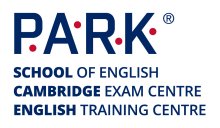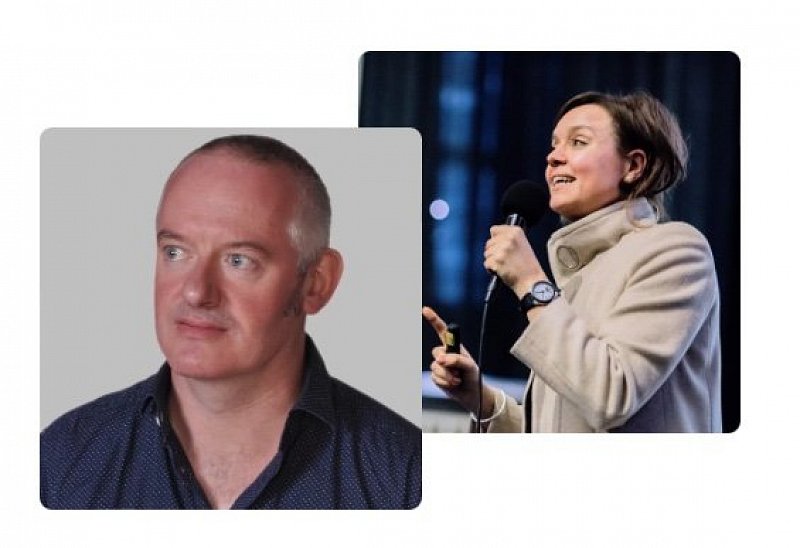The 28th P.A.R.K. Conference
The 28th P.A.R.K. Conference
In April 2021, I wrote up my blog post about the 3rd P.A.R.K. Online Conference. It seems like ages ago now although it’s just 18 months. Things were so different back then and by ‘different’ I mean, well, not precisely satisfying for us teachers. So before I even begin this post, I need to pause and give a moment of appreciation to the P.A.R.K. conference organizers who, even in the time of greatest despair, didn’t give up and gave us hope by keeping up the good job, albeit in a slightly different format.
But here we are - in November 2022. It seems that finally, things have got back to normal and once again, we can live, breathe, attend ‘real’ conferences and learn from people face to face. And I must say that the 28th P.A.R.K. conference has probably been the most enjoyable experience in the professional world so far. Mind you, the previous conferences there or elsewhere had been as good as this one; the line-up of presenters, the atmosphere, and the catering standards had always been top-notch. Still, this time, I felt more present and focused than ever before. So I wonder… is it my age, my experience or the fact that we have become more appreciative after having been through so much recently?
Maybe it was the enthusiasm, joy and authenticity with which the presenters delivered their talks which resonated with me so much. And to be honest, we all got an enormous boost of energy right at the start because the conference was kicked off by the amazing Hugh Dellar. I had already known Hugh from the online environment and had highly appreciated his work. But once I saw him present face-to-face, I was impressed – by his cordial personality as well as his insights on teaching. In his opening plenary, he spoke about motivation. And I need to make the long story short here because otherwise, it would be a very, very long post (and I have some other things to cover here). So, here’s a summary of the tips Hugh gave the audience on how to motivate students:
- Listen to your students (identify their goals and needs, listen to the content of what they say, simply make the most of the people in the room).
- Talk to your students (don’t worry about your TTT).
- Tell your students about yourselves (show them you are a normal person).
- Teach your students useful things (what they actually need to say or what they would say in L1).
- Teach the class first and the coursebook second (don’t worry about the number of pages you need to cover, skip or elaborate if need be).
- Be careful how you correct (overcorrection can destroy people’s confidence; your goal is to help students to say things in a better way).
- Test your students (but in a less frightening way, provide positive feedback, use instant revision activities, get students to re-tell texts and re-do tasks, gap words in your board work).
- Worry less about the topics (even the PARSNIPs, let students ‘bring’ the topics to the lessons).
- Worry more about the language and anecdotes (sometimes it’s the language that drives the interest, not the topic; any text has language that may be useful to students).
- Look deep into your coursebook (a good textbook has little bits of speaking often, teaches useful language, and has conversations in L2 that resemble the ones they have in L1).
All in all, Hugh’s approach seems to be very personalized, student-focused, as well as practical, which definitely resonates with me.
And then it was time for the first workshop. From the plethora of outstanding presenters, I chose to see my favourite methodology teacher of all time - Nikki Fořtová. I remember as if it was just yesterday; I was applying for my master’s programme at Masaryk University in Brno and during the oral examination, she was there on the committee – as inconspicuous and humble as I have always known her since. And then, two years later, when I was taking my final exams, she was there too, sitting quietly in the back of the room, taking notes. In the meantime, we had a lot of great methodology lessons with her. So it’s not surprising that I always try to see her - because of my nostalgic memories and because she is such an amazing professional.
She started her workshops in an unusual manner – she didn’t just say Hello, my name is … and I’m going to talk about X and Y. No, that would be too plain for Nikki. Instead, before she even started formally, as if by the way, she bombarded us with tips from the virtual world, such as youglish.com, where you can learn how to pronounce tricky expressions by listening to authentic videos which contain the word you searched for. Or textingstory.com, an app which enables you to write a text conversation, create a video from your story, watch your creation on the screen, and share it with your students. Then she offered a few handy classroom activities which can potentially make your coursebook more engaging. Throughout her workshop, I learned that, for instance, running dictation can be done in groups of three, not just in pairs. I learned how to erase a permanent marker from the whiteboard (by drawing over the marks you’ve made in a permanent marker with a dry-erase marker). I also discovered that according to research, you can either pre-teach vocabulary or teach it later – it doesn’t really make a difference. And learned a new word - maven. And I’m definitely going to try the run and rip activity she demonstrated. And finally, she showed us an amazing platform called blooket.com, something I had never heard of before but am eager to explore. On this website, the teacher picks a question set and a unique game mode. Then, the website generates a code that players can use to join the game on their own devices. After the game starts, the players will answer questions to help them win.
Just before the lunch break, I saw a talk by Charles Stewart. This was a new ELT figure for me and I didn't quite know what to expect, so I considered it a step out of my comfort zone. But you know what they say: only if you leave your comfort zone do you really start growing. Charles's workshop was called Let's Talk About Progression, from B1 to C2, but the main theme was speaking, namely how to achieve excellence in it. In his view, excellence entails speaking fluently, naturally, and accurately. It also means using body language appropriately, knowing what to say in a particular situation and context, and having plenty of time for planning and rehearsal. He also pointed out that it is important to balance fluency and accuracy. Although many teachers would probably suggest that fluency is far more important, we should also aim at accuracy. Teaching it doesn’t have to be a nuisance, though. He advised that we can teach language structures covertly and inconspicuously. For example, you can give your students a list of have you ever questions before you even teach the present perfect. Students will naturally deduce how to use it long before you explain how things work. Also, he stressed the importance of feedback. He believes that some of the most learning he has done was through feedback. We talked about different ways of providing feedback, e.g. sandwich feedback (positive + constructive + positive), triangle feedback (3 different things a student did well or 2 positives and 1 negative/constructive), or two stars and a wish (2 good points and one thing to improve). Apart from formal teacher feedback, he mentioned the importance of self-reflection and peer feedback. Throughout the talk, it was clear that there was this pattern emerging – the rule of three. Charles called it The 3rd Time Lucky.
In his after-lunch workshop, Hugh Dellar talked about magic. Yes, he believes teachers can make magic in their classrooms and that's one of the reasons he still keeps doing this job. He shared a few moving anecdotes from his own teaching career and he also recalled one of the best lessons he'd ever taught - it was one of those moments when he felt hopeless and desperate and almost wanted to give up but then, something magical happened, which, in the end, changed things completely.
After this beautiful, emotional introduction, Hugh spoke about the ways of turning a lesson into something meaningful and useful. As he already mentioned in his opening plenary, one of our primary goals as teachers is to help students say what they want to say - in better English. So, it's a good idea to board students' real-life stories, reformulate what they say and then encourage them to use the ‘upgraded’ version. To achieve this, the teacher should try to make space beyond controlled and free practice activities, even when they seem under pressure because they have a lot to 'teach'. He advises us to leave space for chat, small talk, stories, and banter. He says that we should keep in mind that lexis is far more often the issue than grammar. Don't worry about the syllabus too much. When a student needs a word, they are ready for that word. Also, accept the fact that students sometimes say things that break conventional taboos (they even bring up PARSNIPs), which can be unpleasant for the teacher to deal with. Some of the most unpleasant ideas we have to deal with in class sometimes emerge in response to the most mundane questions. In the same vein, personal responses will often emerge after fairly impersonal questions. So, all you need to do is to provide the language the student needs and then perhaps explain why you disagree. This can help you take the heat off a difficult situation and you will still be able to provide some useful language to that particular student as well as the rest of the group. Remember, though, that you only get better at turning student output into whole-class input with practice. All in all, the process of working with the language is more important than the product. So, learn to travel off map more. When something interesting pops up, be ready to ditch the plan. Learn how to enquire and explore. Even if magic doesn't happen immediately, at least you have provided opportunities for it to potentially emerge.
And finally, here comes the closing plenary by Nikki Fořtová - the proverbial icing on the cake. You may think that one could already have enough of a presenter they saw earlier that day, but no, you can never have enough of Nikki, simply because she is amazing and she has so much to offer. So I stayed fully focused till the very end, taking notes, trying not to miss anything important she had to say. Her topic was called Seven Habits of Highly Effective Teachers from Someone Who’s Spend 21 Years Trying to Adopt Them. David Koster, the most important guy behind the scenes, had introduced the topic as a bit of a tongue in-the cheek one, so we were ready for some fun. And yes, it was playful indeed but quite deep at the same time.
So, what do highly effective teachers do, according to Nikki?
- They turn up (they stick with their students and are available for them; they show commitment).
- They bring T.E.A. to the classroom (trust, empathy and appreciation).
- They are organized (they clean and purge and they have a logical filing system; something to remember: according to research, students do better in tests in an organized classroom).
- They take risks (Nikki mentioned a few memorable things here: the fixed vs. growth mindset, the quote by Henry Ford: “Whether you think you can, or think you can’t, you’re right.”, and the metaphorical journey leading from the comfort zone to growth).
- They avoid being happiness hoovers, i.e. they avoid sucking the joy of every situation (tip: you can always flip a negative statement into a positive one, e.g. This class just can’t learn. > Every student has the potential to learn).
- They reflect and have bouncebackability (tip: apply the ALAC model: acting > looking back > assessment of essential aspects > creating alternative methods of action > acting > … )
- They recharge (tip: help yourself before you can help others, say “no” in a nice way, i.e. hit the pause button, use the Time Management Eisenhower Matrix (a task management tool that helps you organize and prioritize tasks by urgency and importance. Using the tool, you'll divide your tasks into four boxes based on the tasks you'll do first, the tasks you'll schedule for later, the tasks you'll delegate, and the tasks you'll delete.)
And that was it. After the raffle, I was headed home - happy, recharged and full of optimism and new ideas to use in class. And I feel the same now that I have finished my post. :-)


